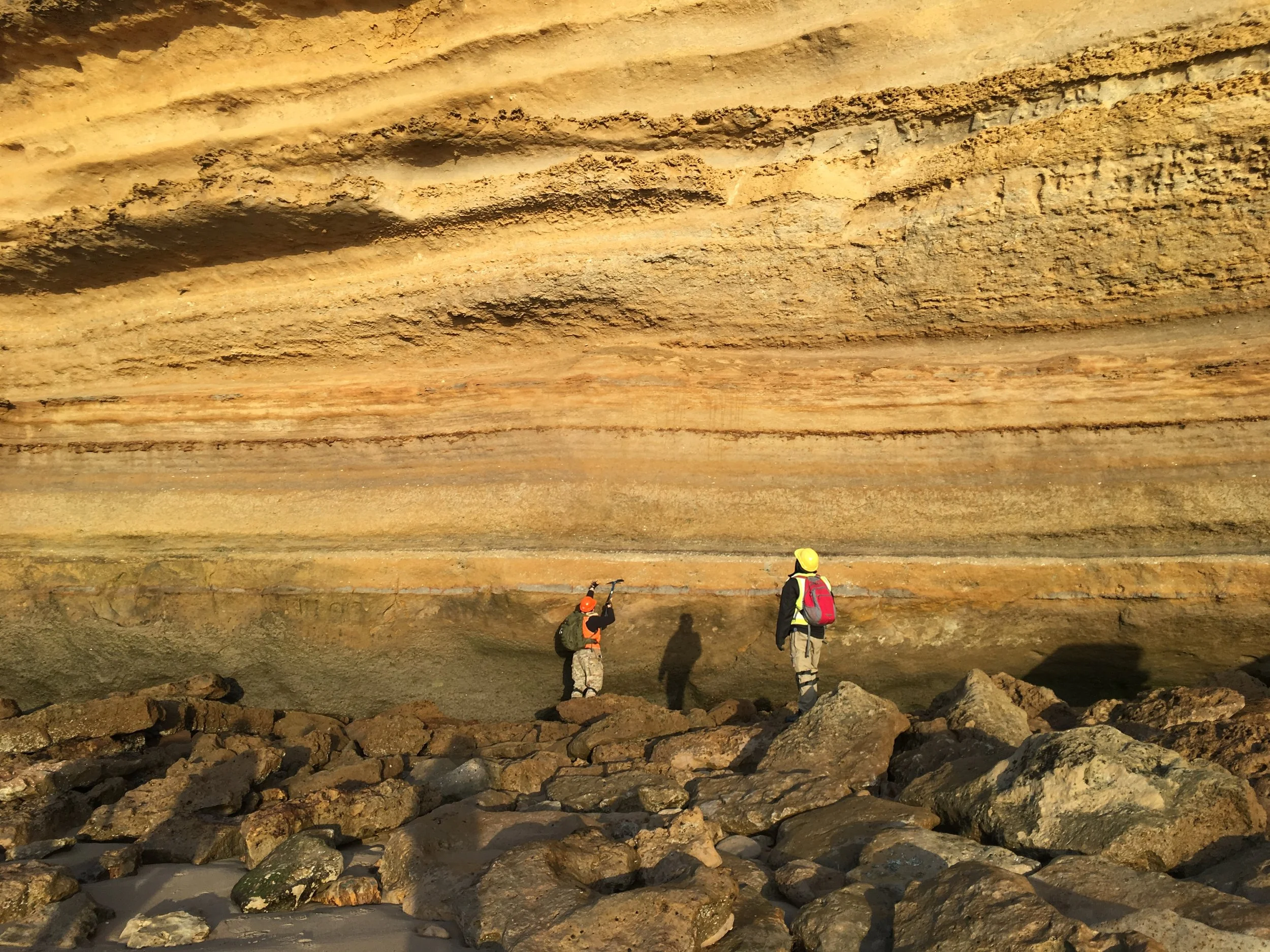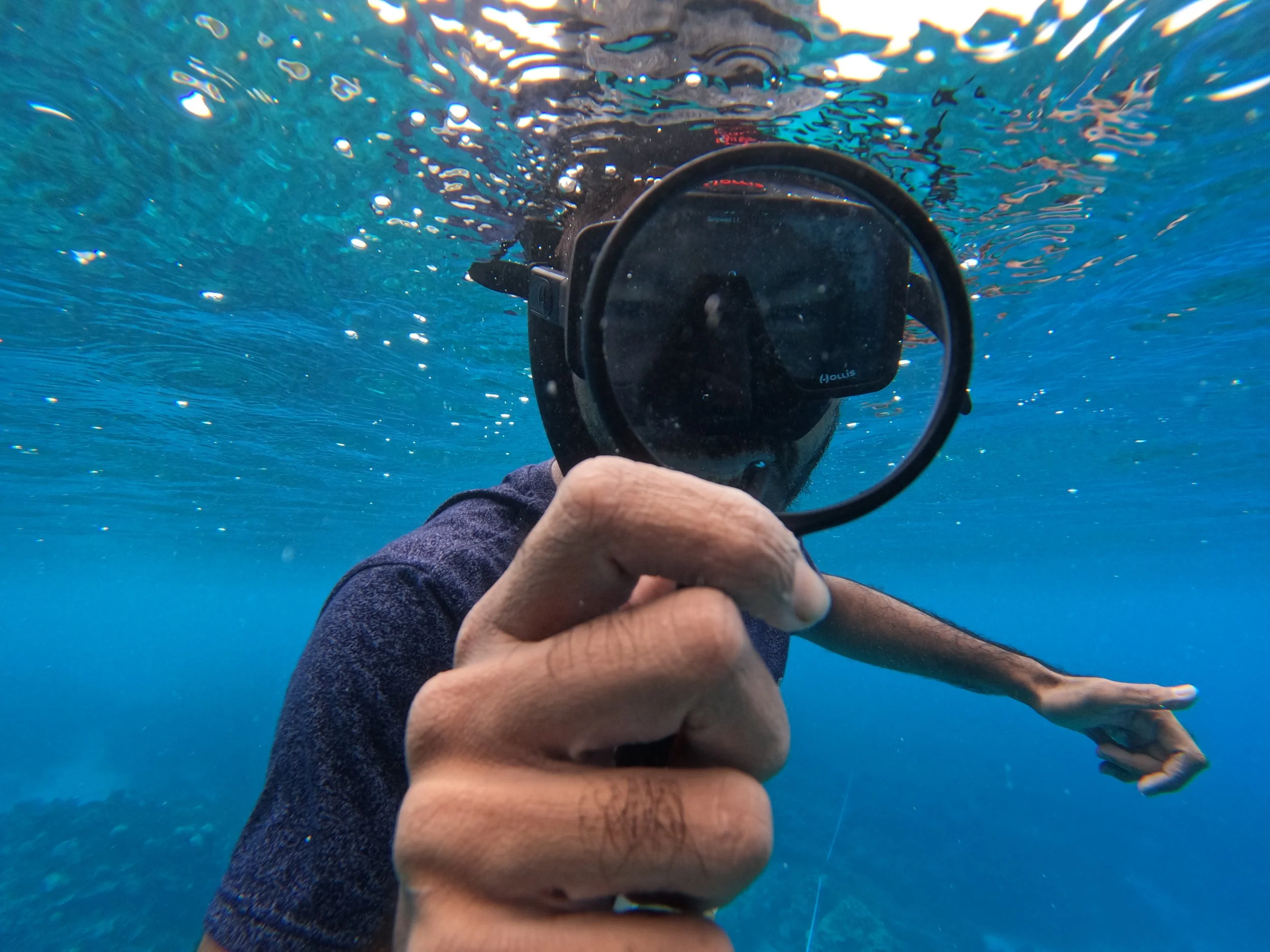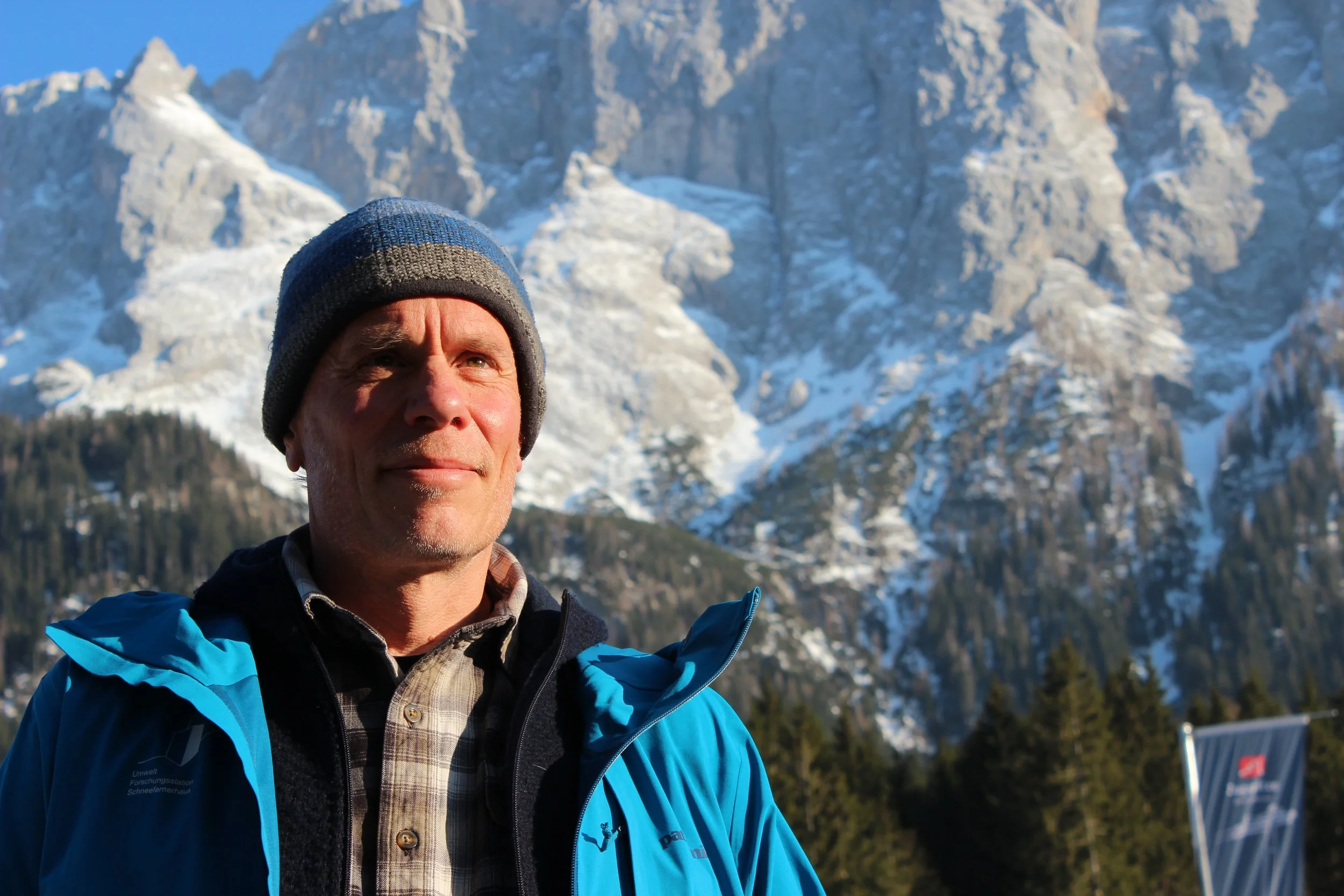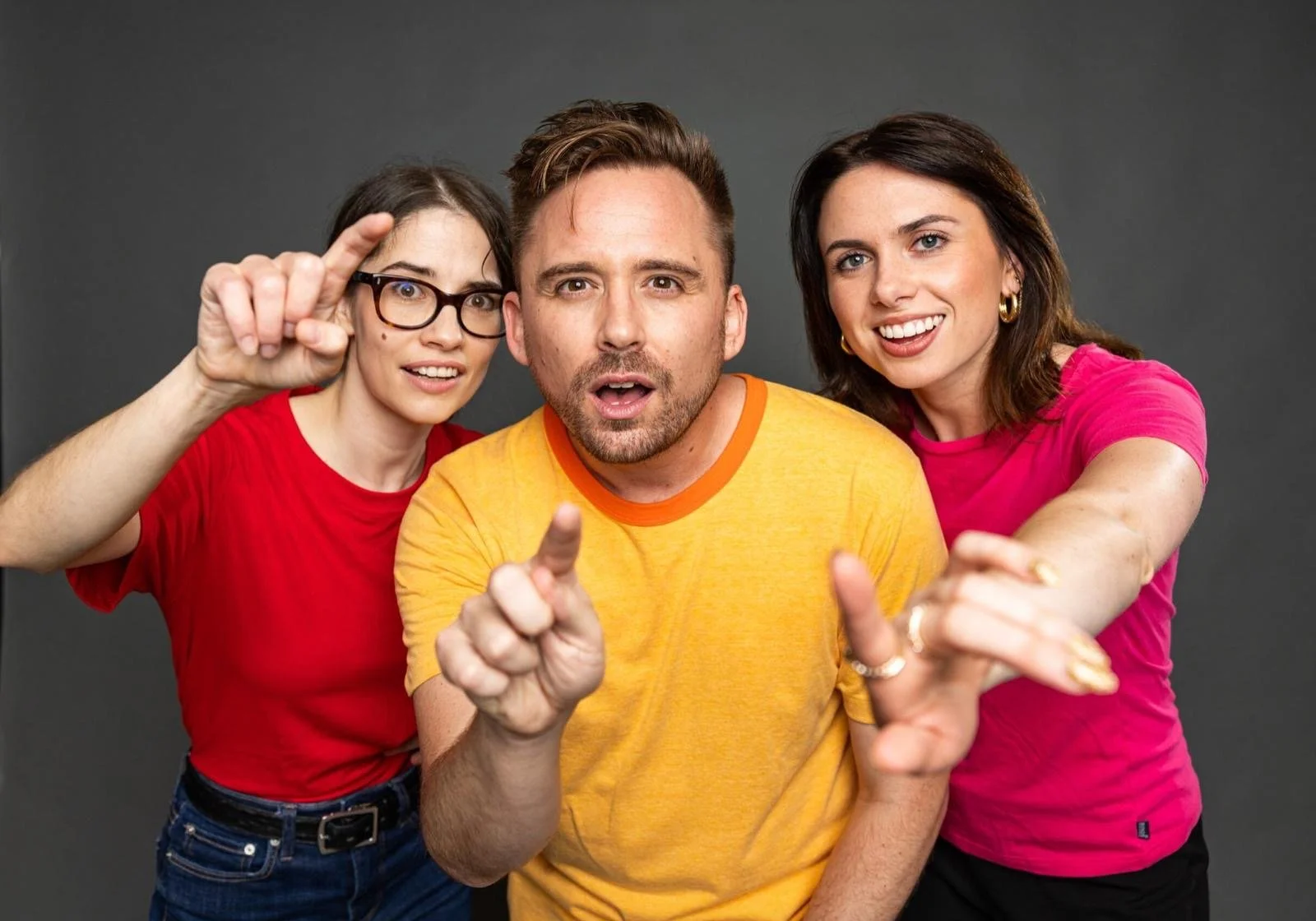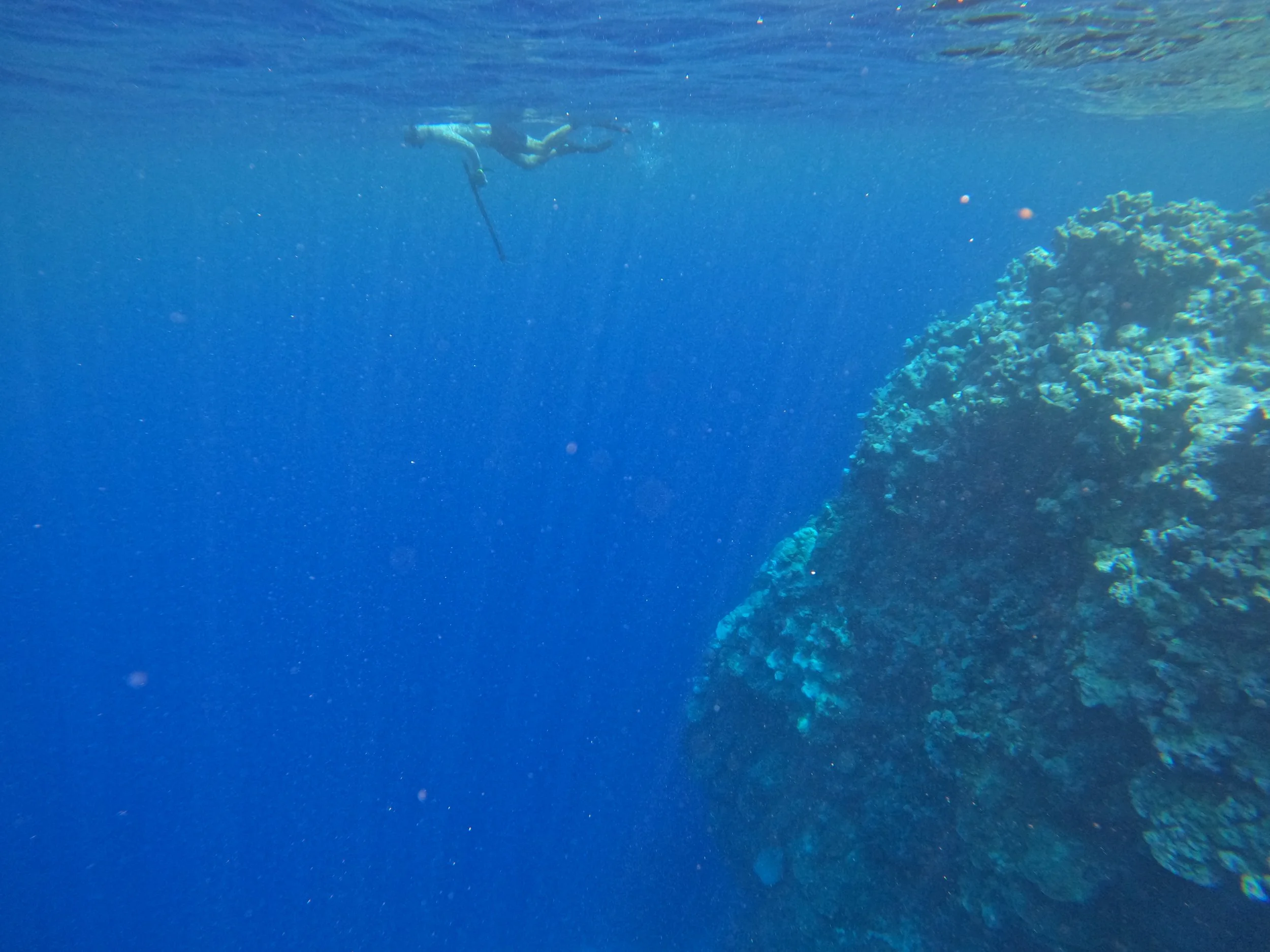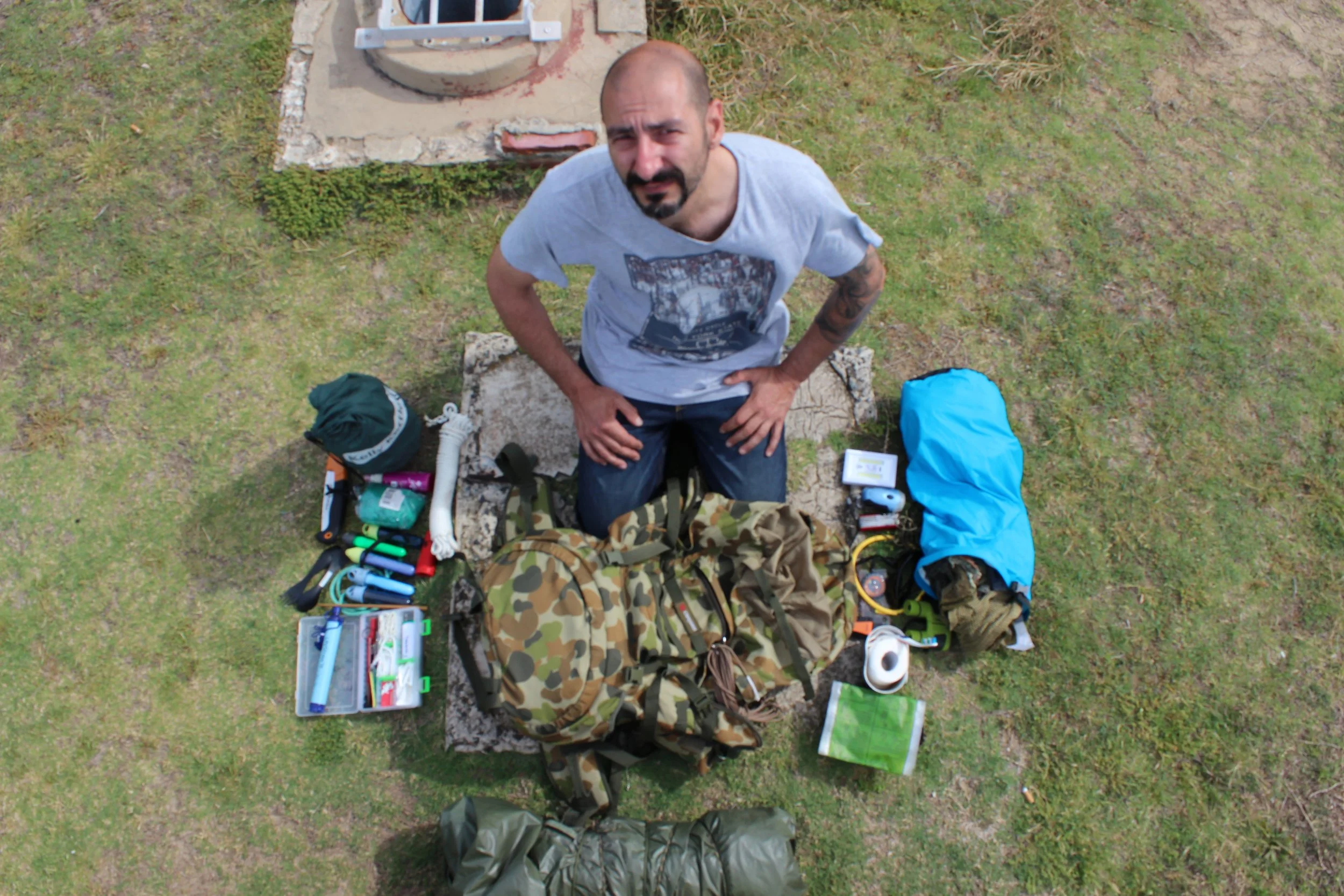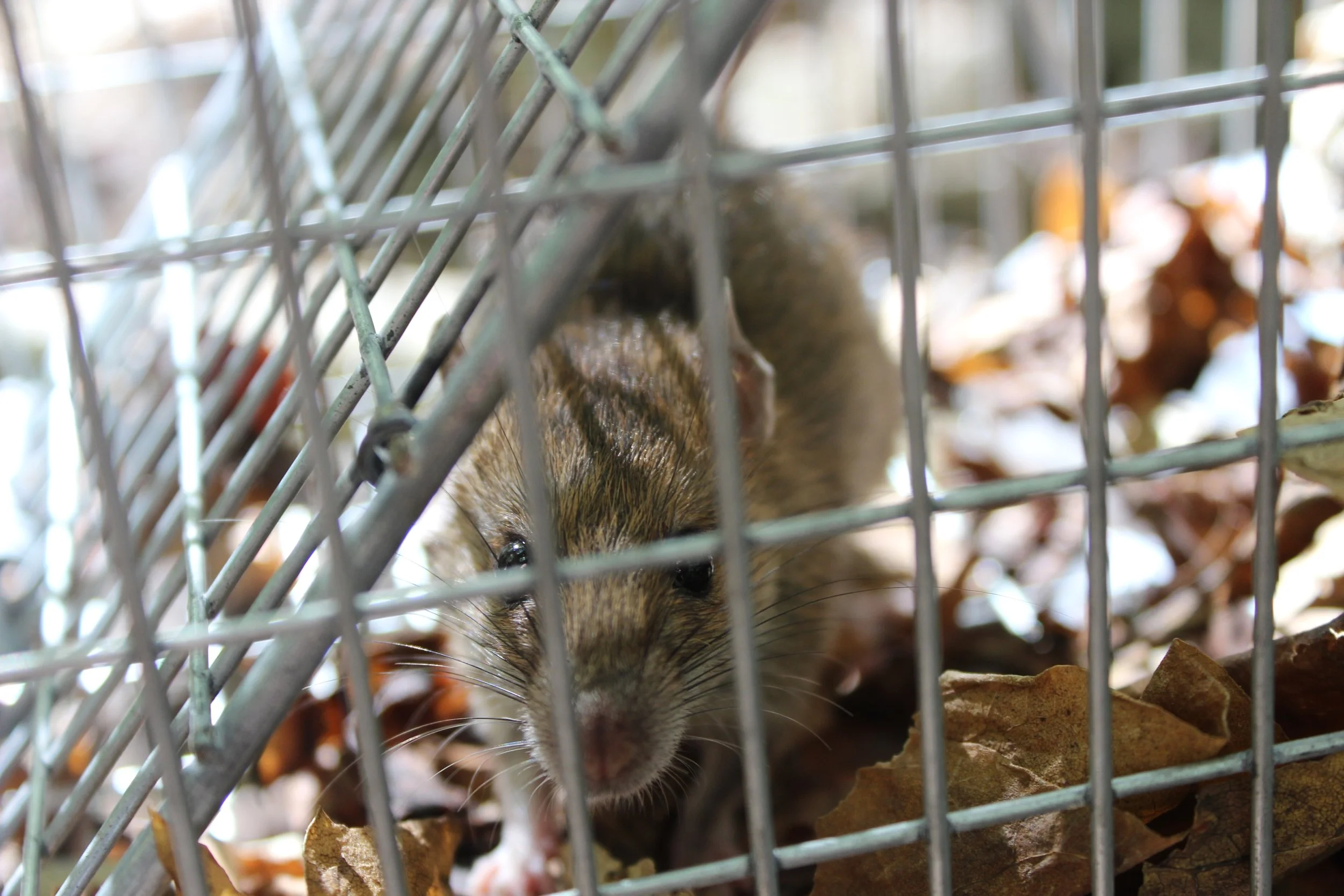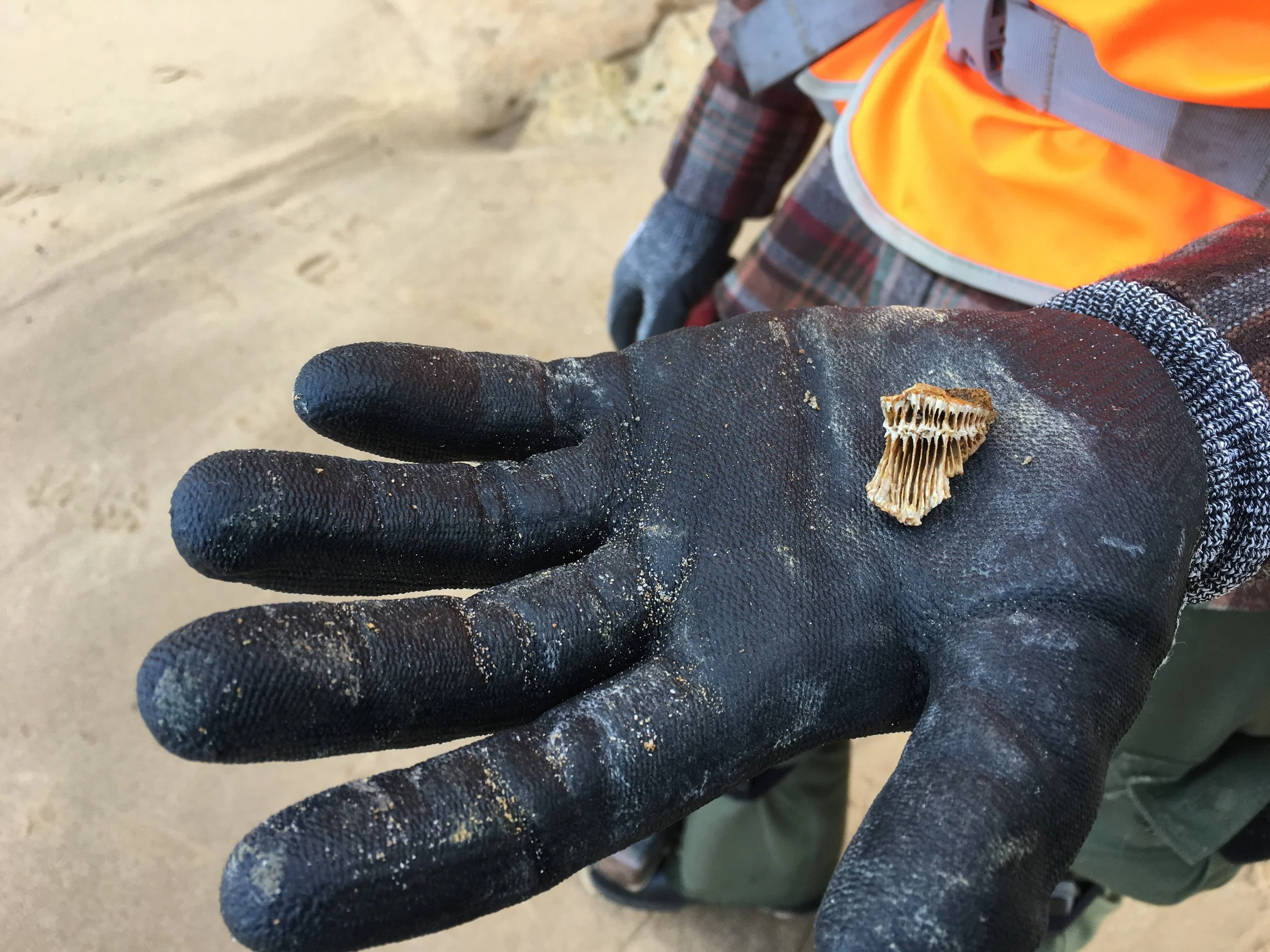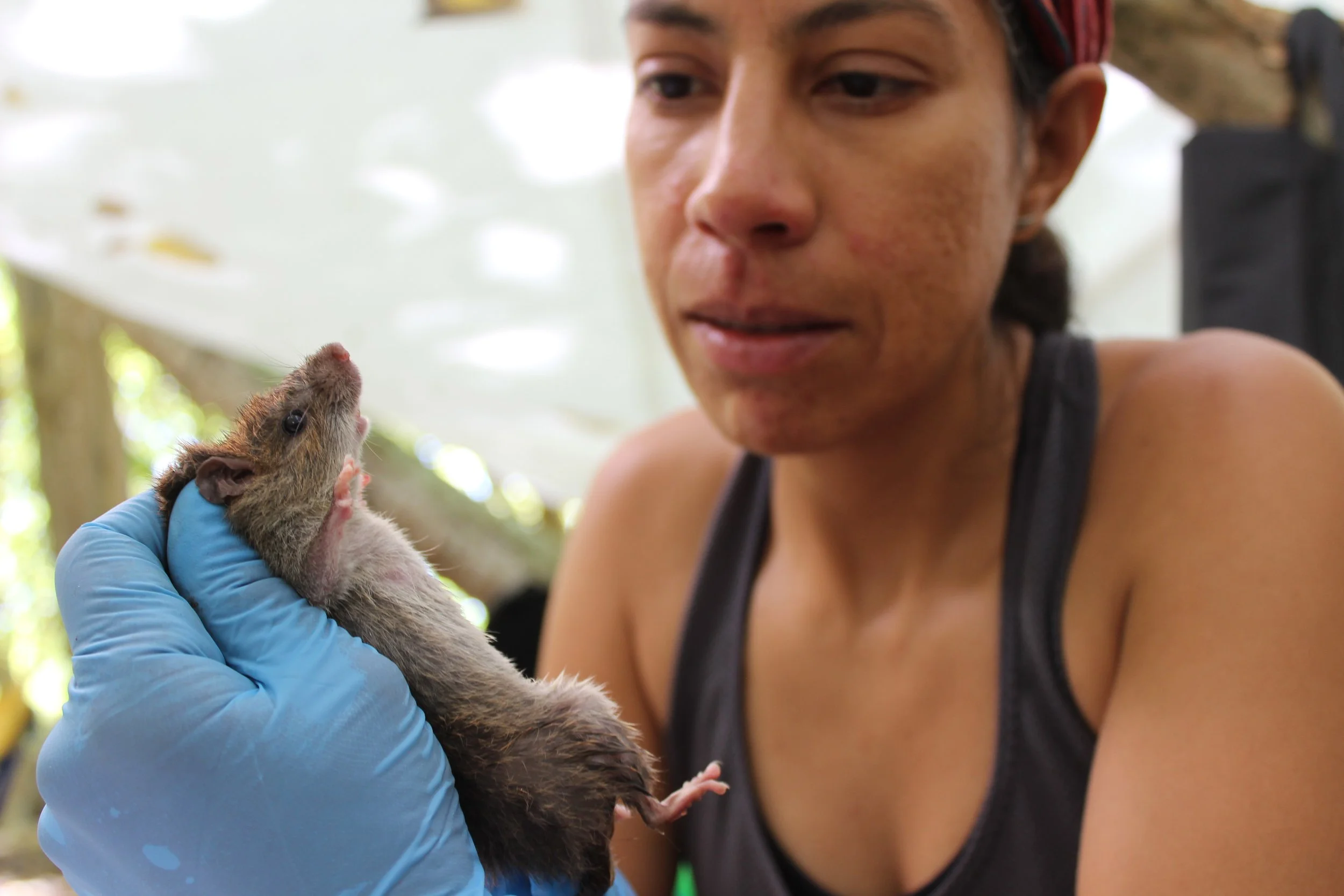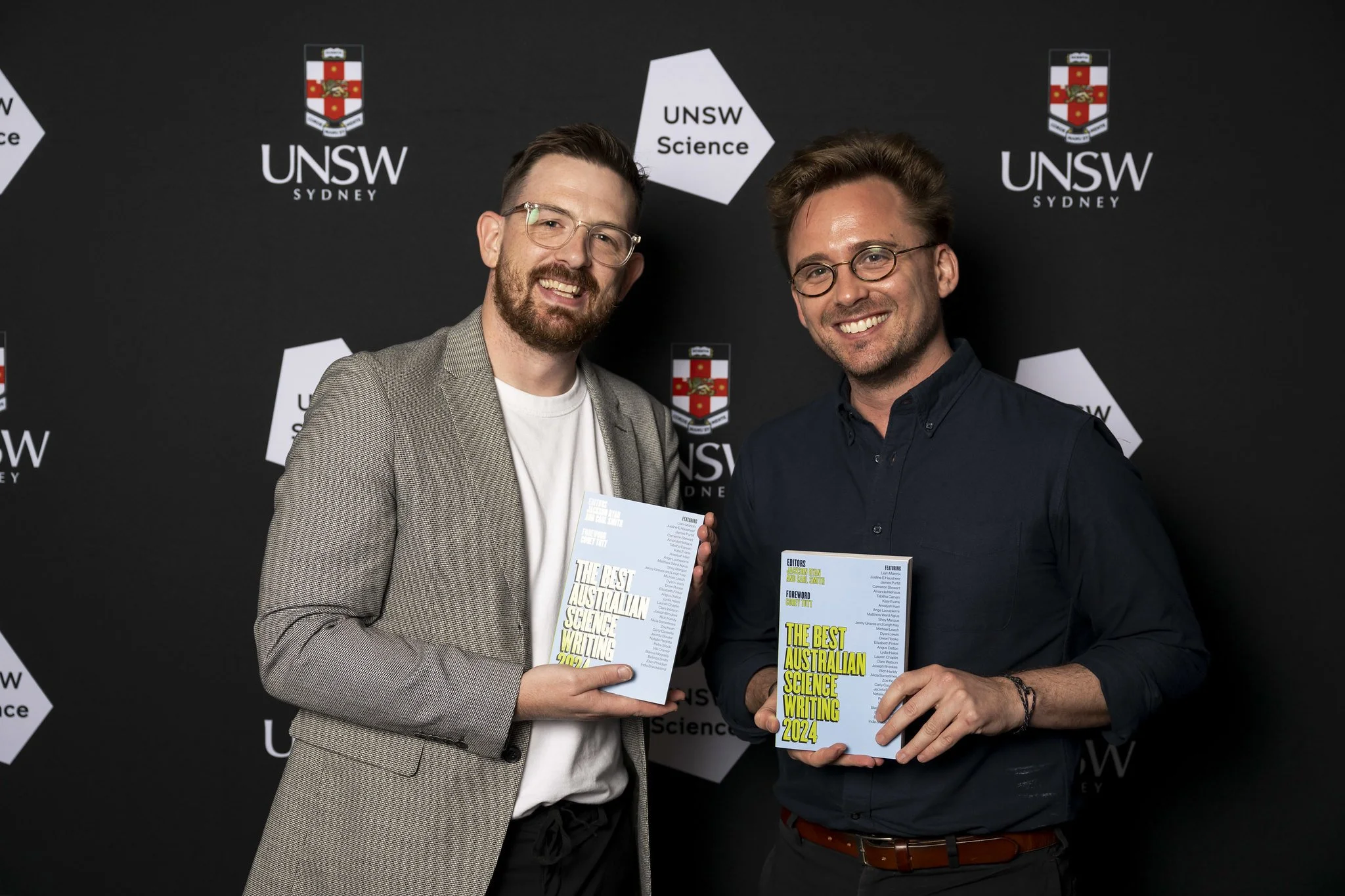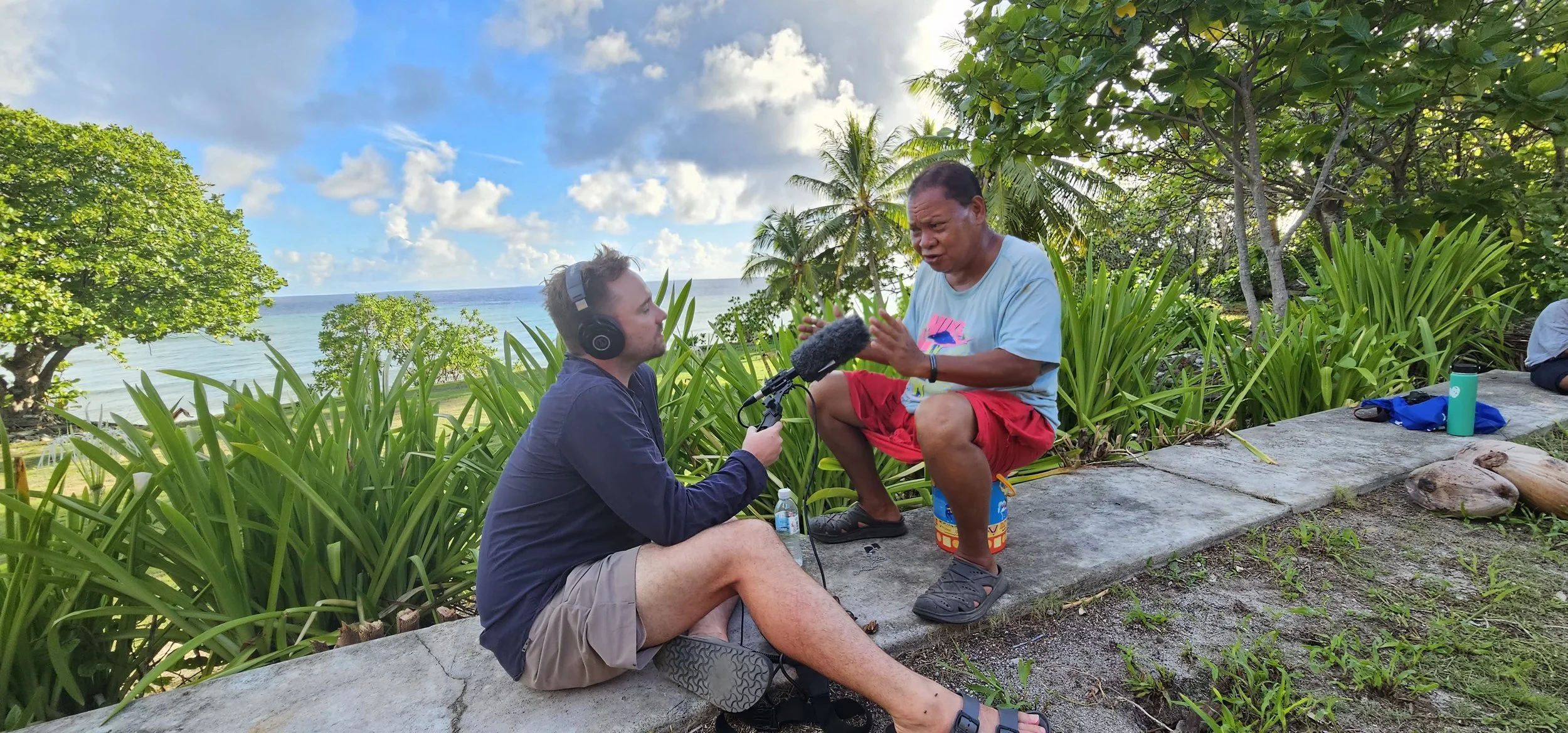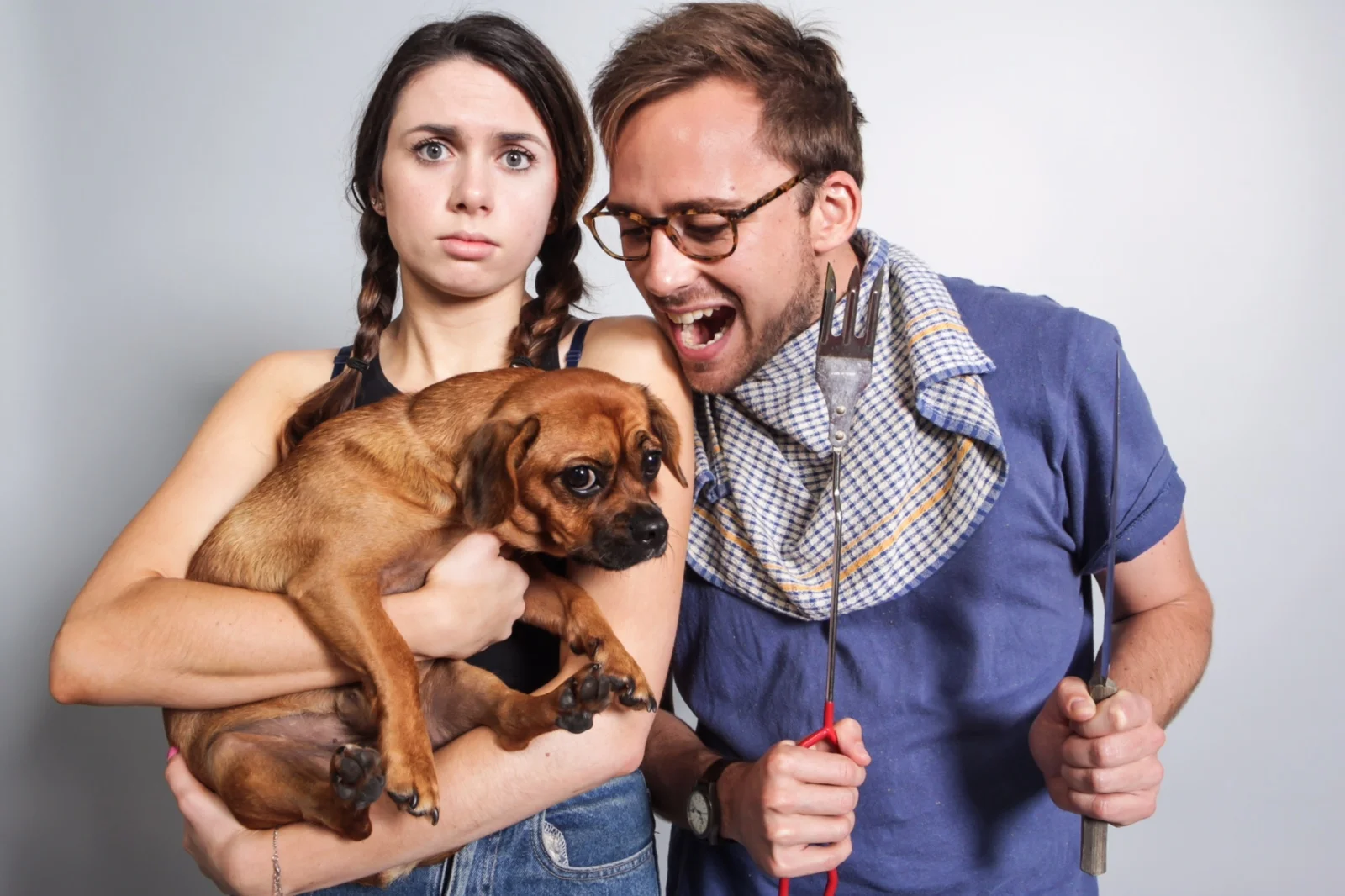Award-winning radio documentaries, podcasts, and online features.
Co-host of the popular children’s ethics podcast Short & Curly.
Author, educator, researcher, and PhD Candidate.
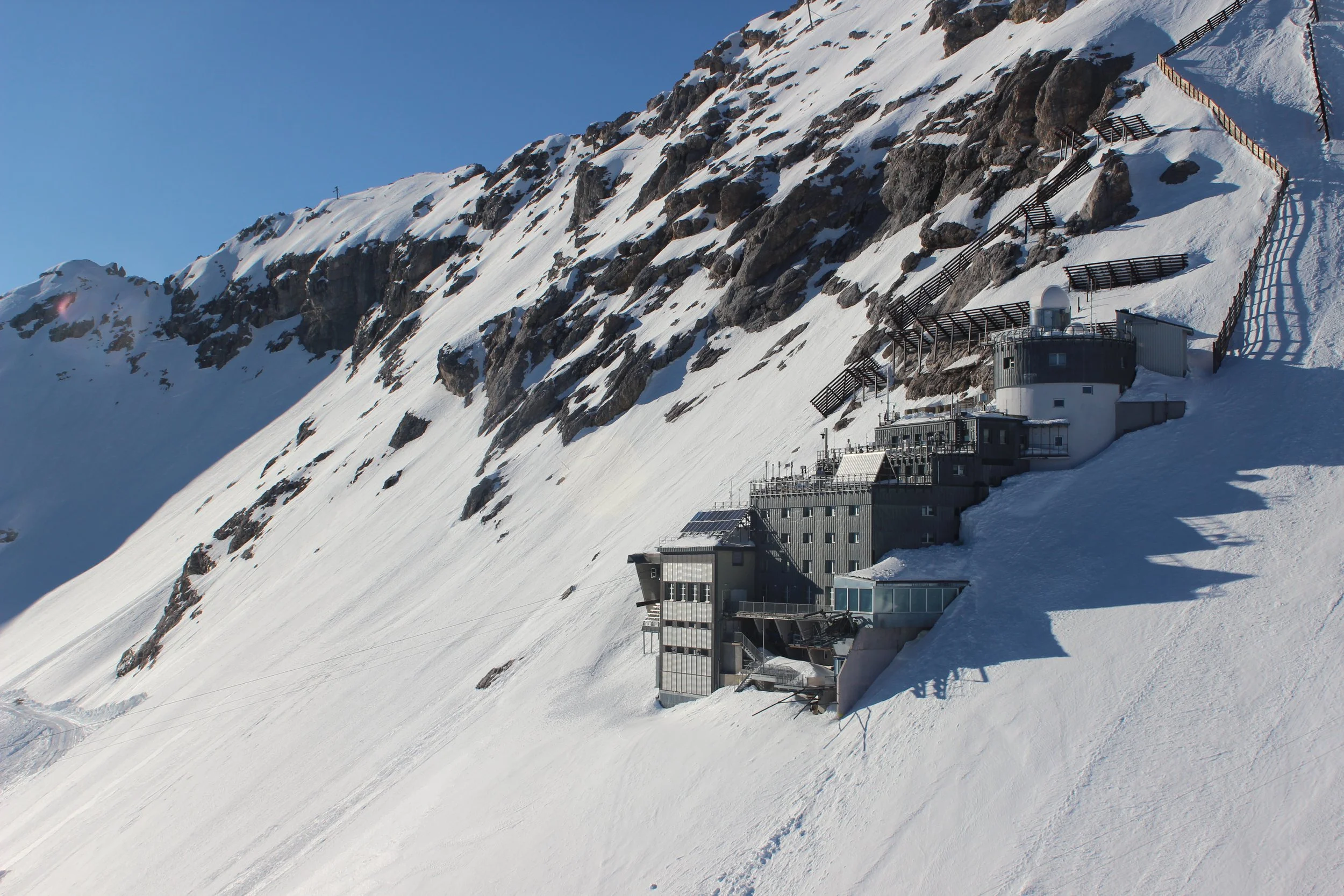
About
14 years experience making radio shows and podcasts for the Australian Broadcasting Corporation (ABC)’s Radio National, BBC, RNZ, WNYC, CBC, ABC Radio Australia, Monocle, and more.
Plus in-depth multimedia science journalism for ABC Science - latest stories here.
10 years experience presenting children’s shows, including Behind the News, Pickle, Minibeast Heroes, and the popular ethics podcast Short & Curly.
Tutor, lecturer and sessional academic in journalism and podcasting, PhD Candidate at the University of Queensland.
Award-winning science reporting, including a Walkley Award for Long-form Journalism, a Eureka Prize for Science Journalism, a Covering Climate Now Award, and a Deep Dive Grant from the Pulitzer Centre.
Co-Editor of the Best Australian Science Writing 2024 book.
Science Journalists Association of Australia’s Vice President.
2025 European Journalism Fellow at the Freie Universität Berlin.
Podcast host
-
'Pacific Scientific' podcast - ABC Radio Australia
Creator of the award-winning series taking you deep into the Pacific region to meet the scientists living and breathing research.
-
'Strange Frontiers' podcast - ABC Radio National
Host of the series taking you to unusual and remarkable places where science happens.
-
'Short & Curly' podcast - ABC Kids & Family
Co-host of Short & Curly, making philosophy and ethics easy, entertaining, and thought-provoking.
Storytelling with sound
-
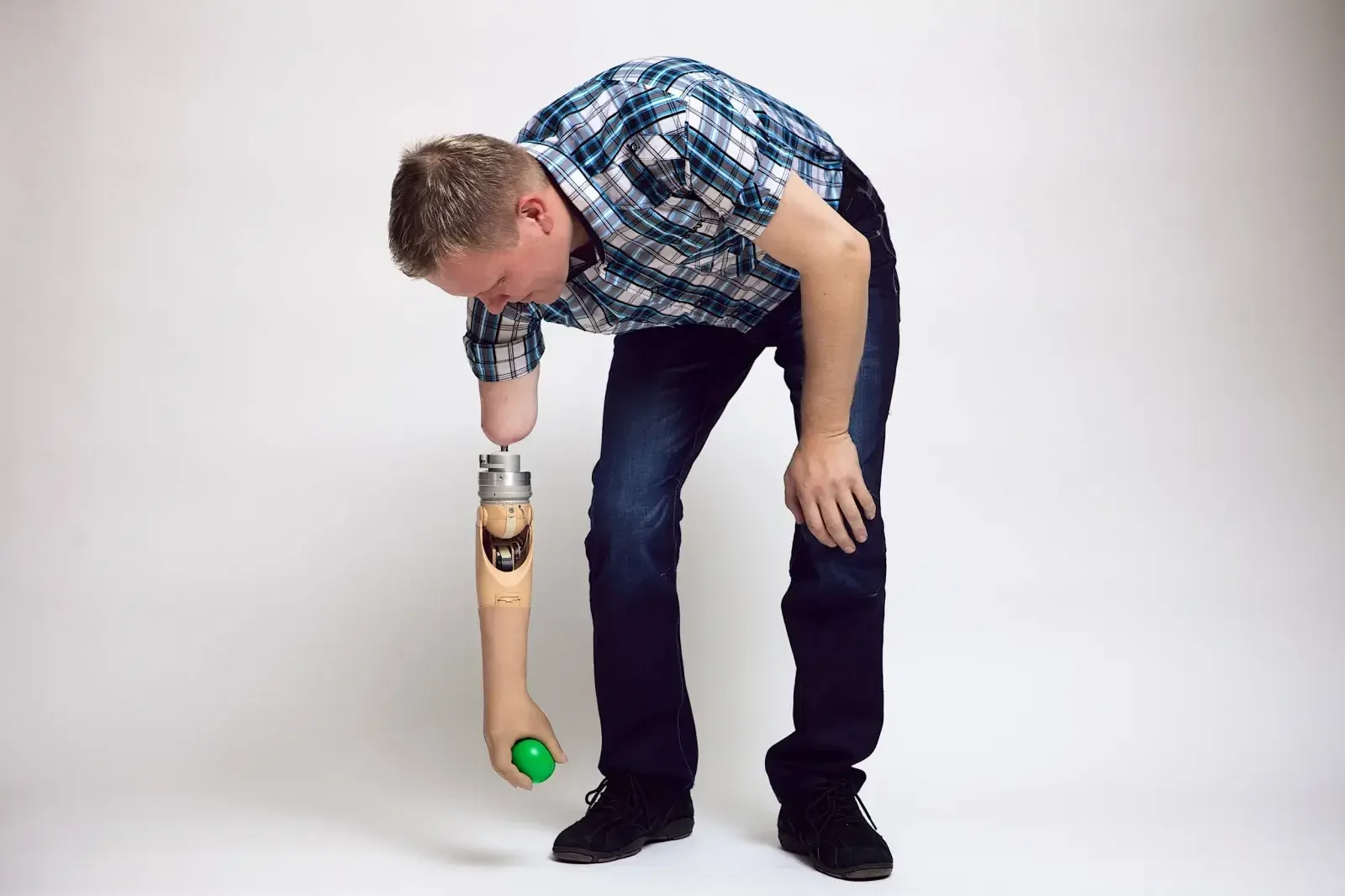
Bionic Bodies - ABC 'Science Show'
Sight for the blind, hearing for the deaf, a body with functionality restored. These are the promises of bionics.
In this Walkley Award-winning series, Bionic Bodies, Carl Smith examines the emerging field of artificial body parts.
-
Searching for awe, when you've never felt it - ABC 'All in the Mind'
Have you ever experienced the feeling of awe?
Today we follow one person's attempt at finding awe when she's never felt it before.
-
The Apocalypse - ABC 'Science Friction'
Science Friction's three-part series, The Apocalypse, interrogating three dramatic natural events that could catastrophically change life as we know it.
-
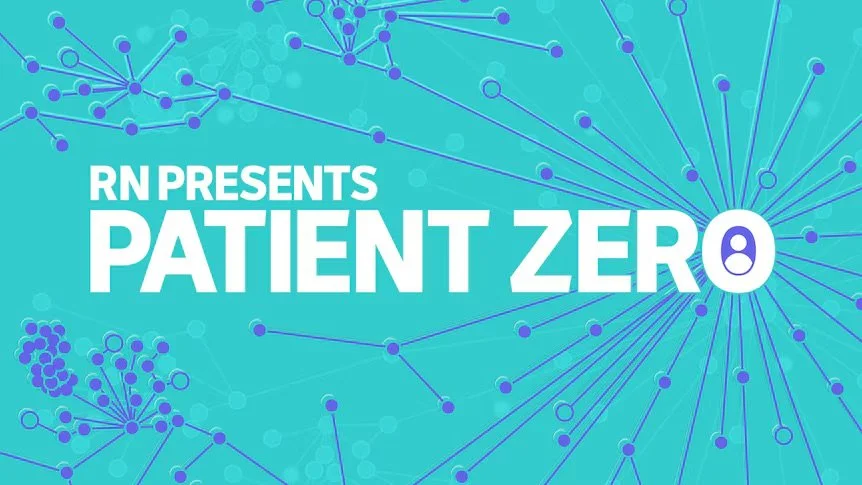
Patient Zero - ABC Radio National
Senior Producer for the Eureka Prize-winning series Patient Zero, tracing historical disease outbreaks back to their source.
Field reporting, decoding complex content
-
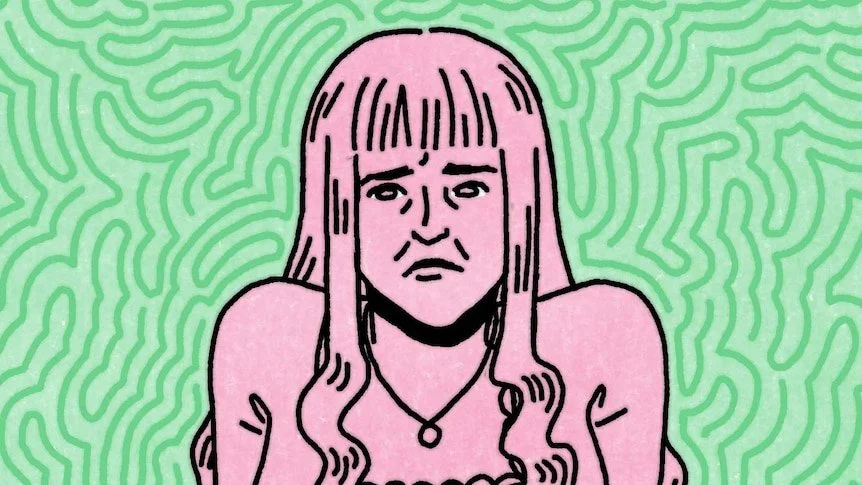
Click-Sick - ABC 'Science Friction'
Series Producer of Click-Sick, which hunts down the sources, considers the harms, and shines a spotlight on fake health claims.
-
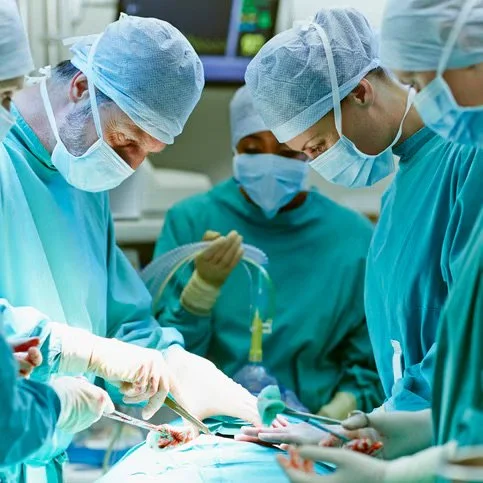
Chimeras in Medicine - ABC 'Health Report'
At the cutting edge of medical science, humans and animals are being combined. Hear how in this two-part series.
A finalist for the 2022 Eureka Prize for Science Journalism.
-
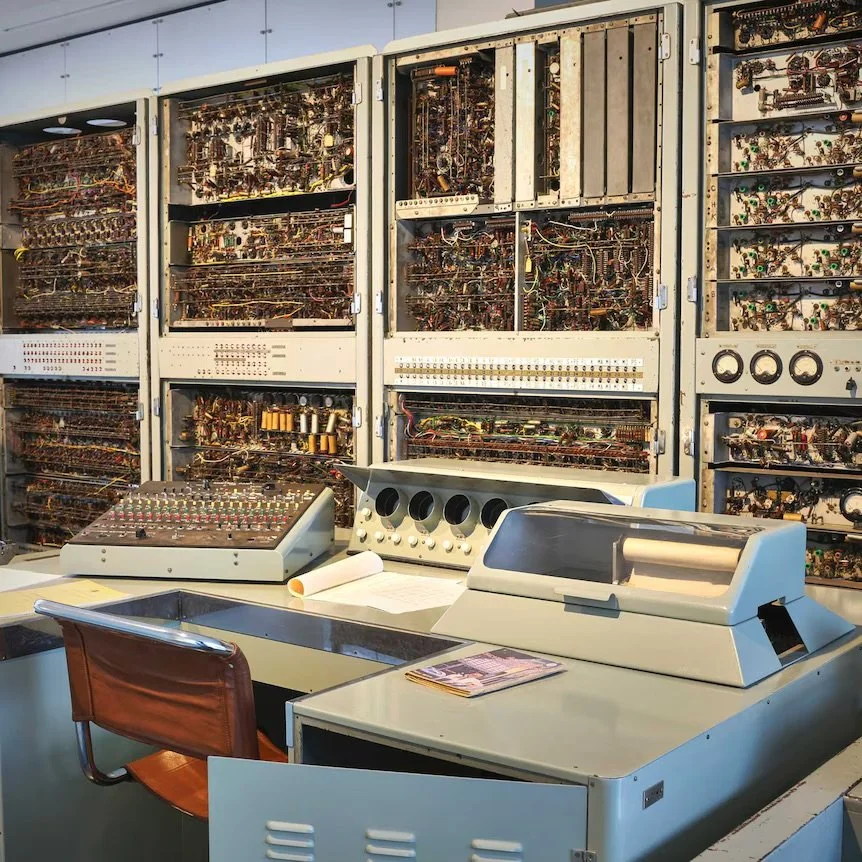
Electronic Music's Origin Story - ABC 'Sum of All Parts'
Where and when did a digital computer play music for the first time? The surprising story of how Australia’s first computer started singing.
-
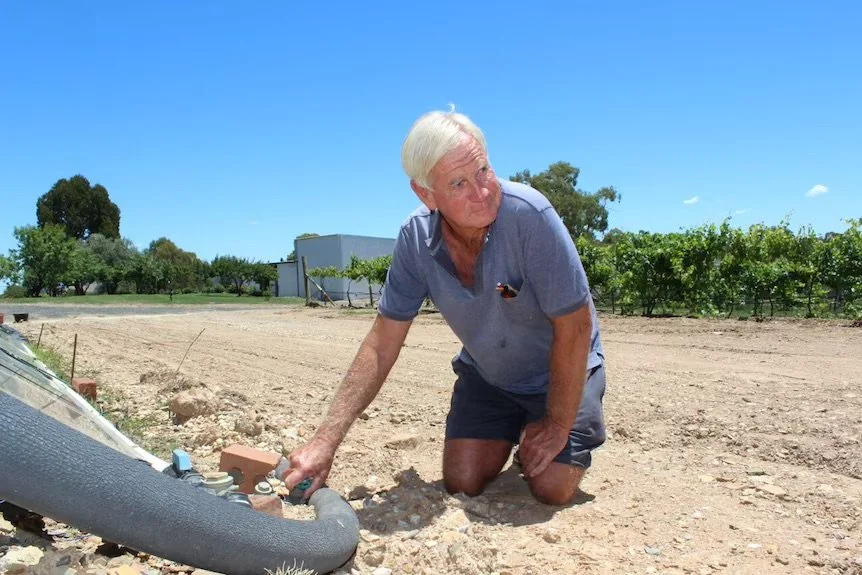
Energy Futures - ABC 'Science Show'
In Energy Futures, Carl Smith examines Australia’s energy options beyond fossil fuels.
How do hydro, nuclear, solar, wind, ocean, and other alternatives stack up?
-
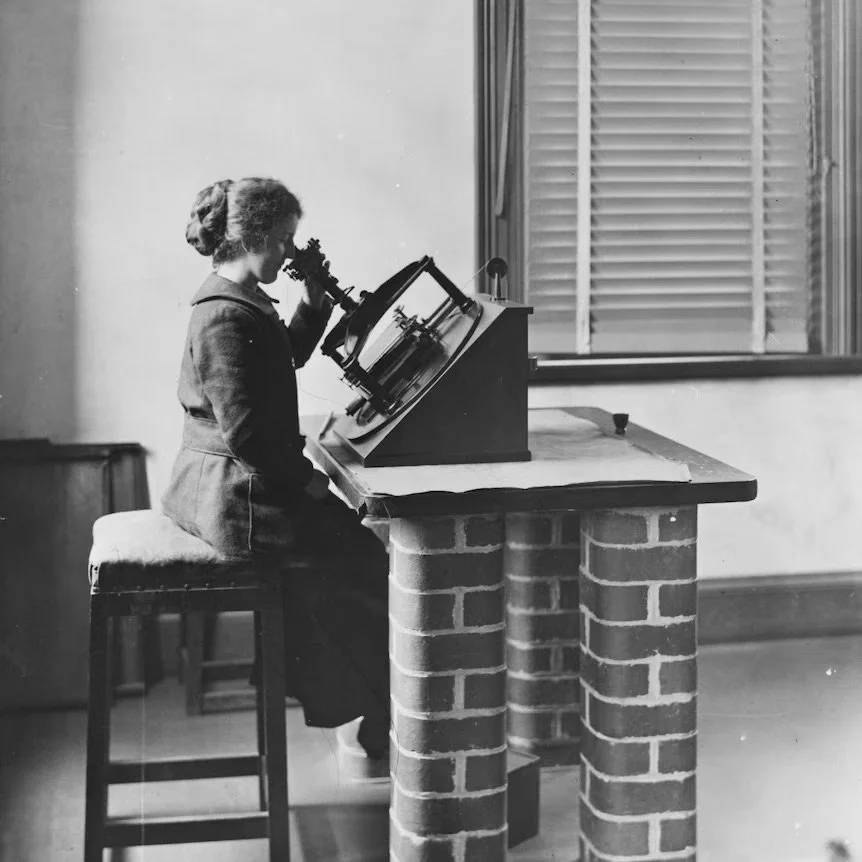
Forgotten women of Australian computing - ABC 'Science Friction'
Hear about the women in Australian computing who were nearly left out of the history books.
A finalist for the 2020 Eureka Prize for Science Journalism.
-
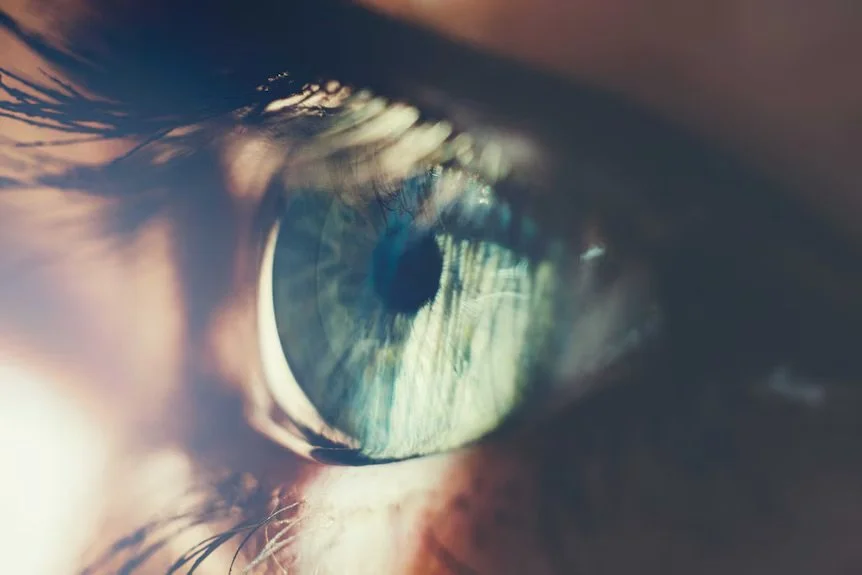
The Mind's Eye - ABC 'All in the Mind'
Neurologists believe roughly 2 per cent of people can't conjure an image in their mind's eye.
But is it really so important?
-
Trouble in Paradise - BBC 'The Chase'
How scientists are trying to eradicate rats and mosquitoes threatening French Polynesia. Listen here.
A co-production for The BBC’s Discovery and ABC’s Off Track.
-
Frothin' on Fossils - ABC 'Science Show'
Hidden in the cliffs of Victoria’s Surf Coast, are clues to an ancient whale mystery.
Feature writing and photography
-
A pest in paradise
What should we know about the services you provide? Better descriptions result in more sales.
-
From a snowy alpine lair, lasers pierce the night
What should we know about the services you provide? Better descriptions result in more sales.
-
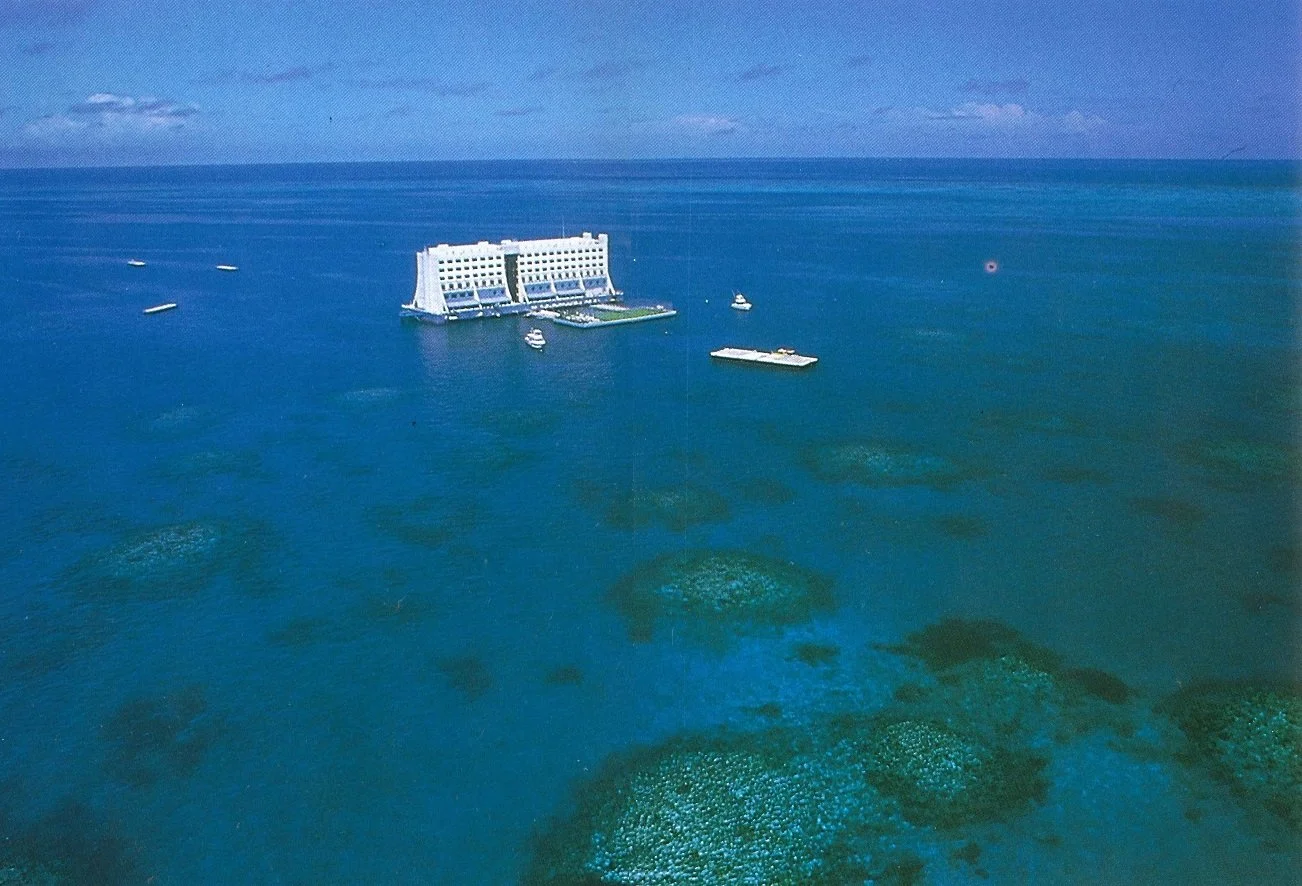
The bizarre story of Australia's floating hotel and its 14,000km round journey to North Korea
What should we know about the services you provide? Better descriptions result in more sales.
-

Bionic eyes, arms and spines are no longer science fiction
In the spring of 1984, something unusual began to happen to Dianne Ashworth's vision.
-

A guide to Australia's future energy options
Australians are looking to a future without coal. So what are our other options? Carl Smith guides us through Australia's alternative energy sources.
-

Scientists build 'DNA robots' that transport molecular cargo using 'arms' and 'feet'
US researchers have built a team of robots, made entirely out of DNA, that can walk around and sort molecules.
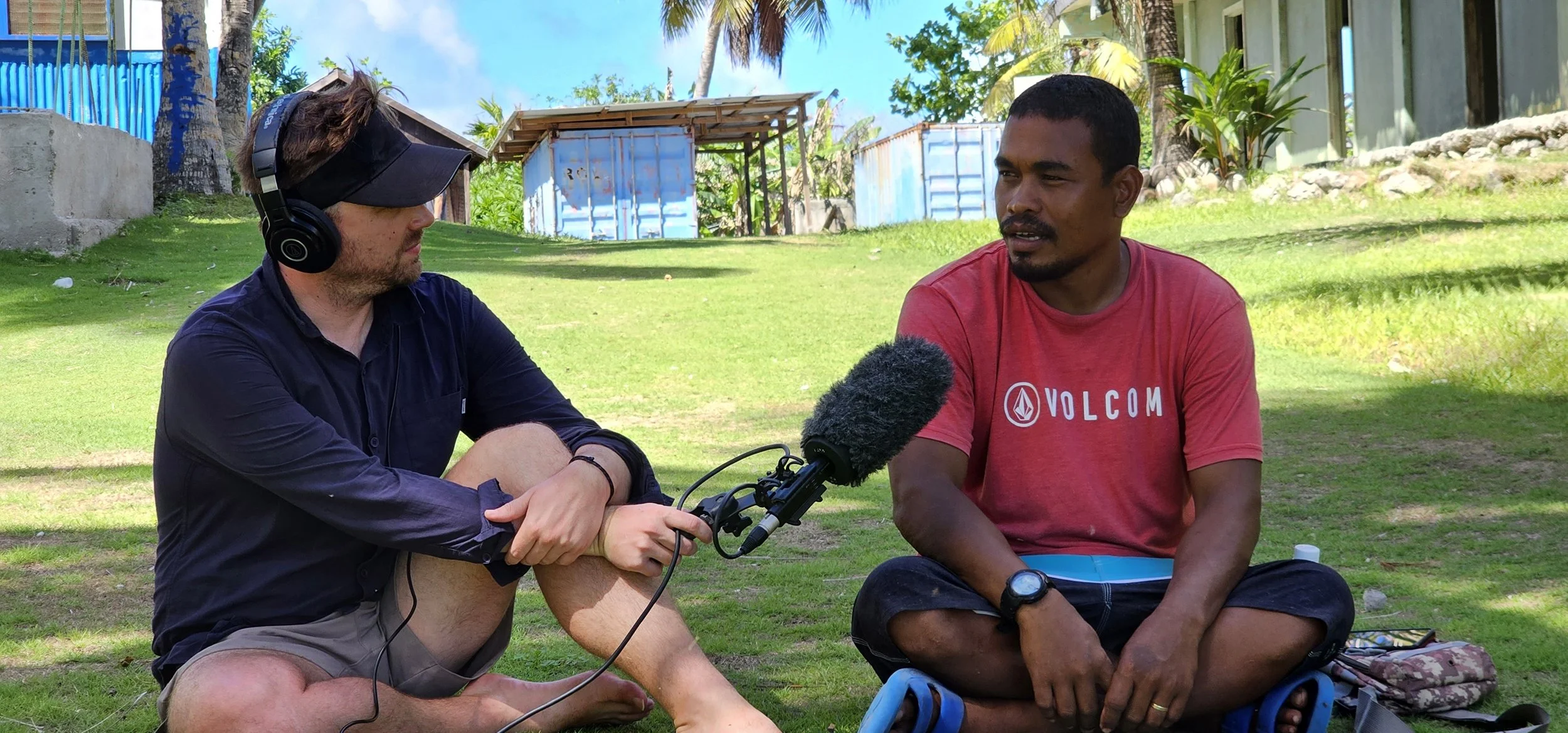
Multi-platform storytelling
-
Reporter, writer, presenter, and video journalist across a host of ABC shows, including:
Behind the News
ABC News
730
Landline
Minibeast Heroes
And a regular on-air guest for shows like ABC News 24, The Project, and more.
-
I love taking photos in the field while I’m recording - almost all of the pictures above are my own, and you can check out my written stories for more.
-
I’ve been very lucky to experiment with creating digital comics to help explain complex science topics, like:
The demon’s in AI’s data (an educational narrative comic)
I needed my son to get tested for COVID-19 — but a dodgy Facebook post stood in my way (ABC News Online)
-
Regular MC and host of live events across Australia, including at the Sydney Writers’ Festival, World Science Festival Brisbane, Adelaide Writers’ Week, Australian Museum, and elsewhere.
Judge, facilitator, performer, and live interviewer on-stage for children and adults, helping publics make sense of complex information.
-
Vice President and a founding committee member of the Science Journalists Association of Australia (SJAA) helping establish workshops, grant and residency programs.
A passionate supporter of young people, often assisting as a judge, mentor, speaker and MC across the country.
-
Co-Editor of the Best Australian Science Writing 2024 anthology, a book published through UNSW Press.
I’ve also authored chapters in the 2018, 2019, 2020, 2023, and 2025 editions.
Teaching & Research
PhD Candidate in Digital Journalism at the University of Queensland in Australia.
In 2025, a European Journalism Fellow at the Freie Universität Berlin.
Degrees in Journalism and Molecular Genetics, with a handful of papers published across both fields.
Since 2010, a sessional academic, tutor, and guest lecturer across numerous Australian universities, regularly teaching into Introductory Journalism, Radio Journalism, Broadcast Journalism, Podcasting, and Science Communication classes.
2025 Bellagio Centre Resident
2025 Humboldt Residency Programme
2024 ‘Berlin Residency Award’, University of Queensland
2024 Pulitzer Centre Deep Dive Ocean Reporting Grant Recipient
2023 MIP.labor Fellow, Freie Universität Berlin
2023 European Geosciences Union Fellow
2023 Falling Walls Media Fellow
2022 Journalist in Residence at the Heidelberg Institute for Theoretical Studies (HITS)

Awards and reviews
-
2024 Covering Climate Now Award
“In two communities — one in the US state of Georgia and one in Scotland — marginalized communities that have been neglected by their governments are taking matters into their own hands to defend against flooding. While they’re at it, these grassroots movements, partnering with local scientists, are also experimenting with ways to restore the environment. This informative piece by Carl Smith serves up an inspiring look at the power and agency of community activists, while remaining clear-eyed about the challenges they face in the absence of systemic support. Judges called Smith’s work “refreshing” and imminently listenable.”
-
2017 Young Walkley Award for long-form journalism
The Walkley Awards are Australia’s premier journalism awards.
For the series Bionic Bodies on ABC Radio National’s ‘Science Show’.
-
2021 Eureka Prize for Science Journalism
Patient Zero tells stories of disease outbreaks: where they begin, why they happen and how we found ourselves in the middle of one. From the early days of the COVID-19 pandemic to medical mysteries of the past, this eight-part series provides a new lens through which to view pandemics.
Read more here.
-
2018 Webby Award Honoree, Kids & Family Podcasts
For the children’s ethics and philosophy podcast ‘Short & Curly’.
Read some lovely and emoji-filled reviews from our fiercely loyal fans here.
-
2024 Pulitzer Centre Deep Dive Grant
“Smith collaborated with locals to create a multimedia view of the atoll through photography and radio. His project reveals the possibilities for climate-threatened populations of a collaborative model between Western science and Indigenous traditional land stewardship. Smith takes a similar approach to his own reporting work, taking time to understand the local people’s culture, ways of knowing, and communication styles before pulling out a camera. The resulting series of reports reflects the bittersweet balance of hope and determination in the face of extreme climate threats.”
More here.
-
2023 Clarion Award for Health and Science Reporting
Judges’ comments: “In a strong group of entries, ‘Strange Frontiers’ was a stand-out example of excellence in health, medical or science reporting. The journalist combined multimedia storytelling and in-depth research to deliver insightful and impactful reporting on seriously complex science, which has the potential to change lives and society. The reporting was accessible, immersive, and stunningly produced.”
Contact
You can email me at: smith.carl[at]abc.net.au or carlsmithAUS[at]gmail.com
I’m also on LinkedIn, or bluesky / twitter - @CarlSmithAUS

